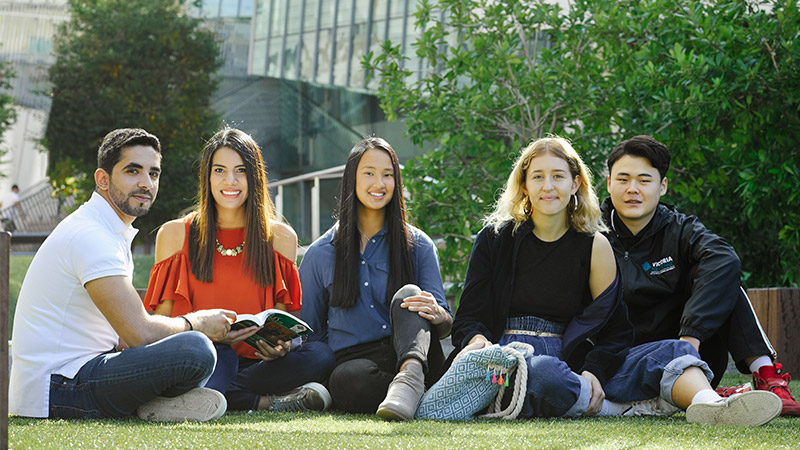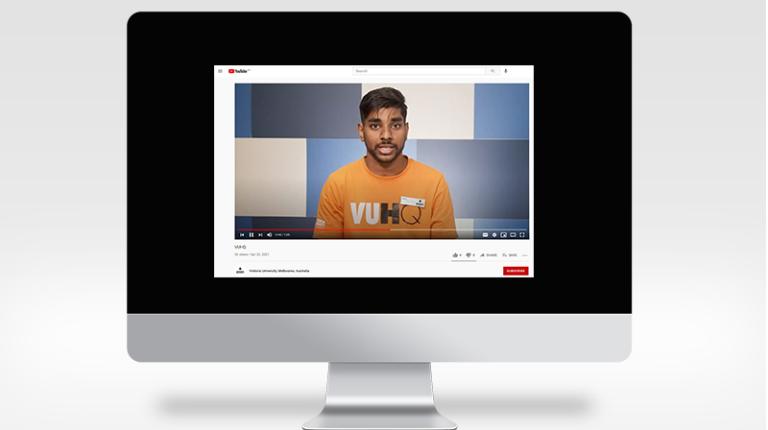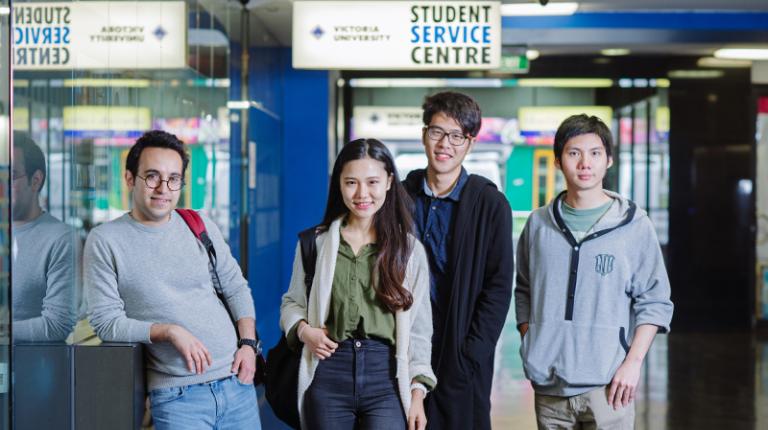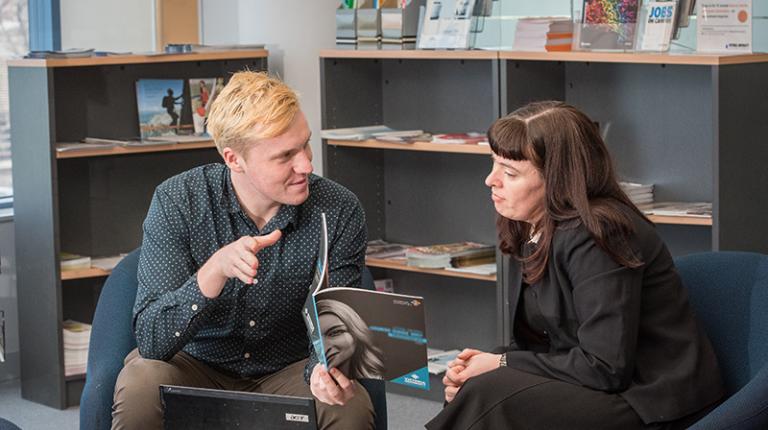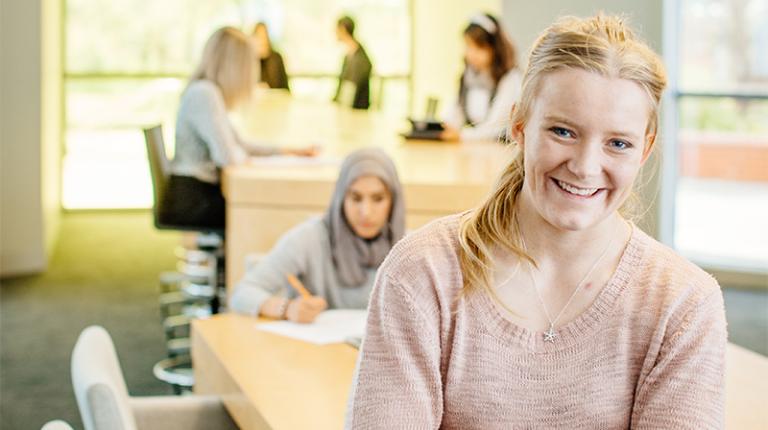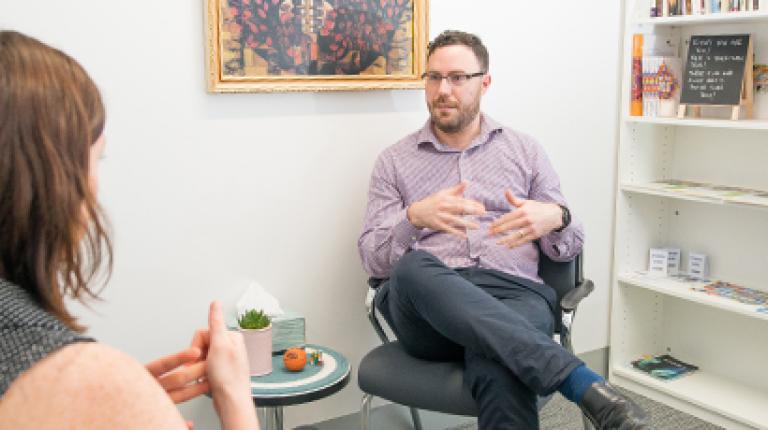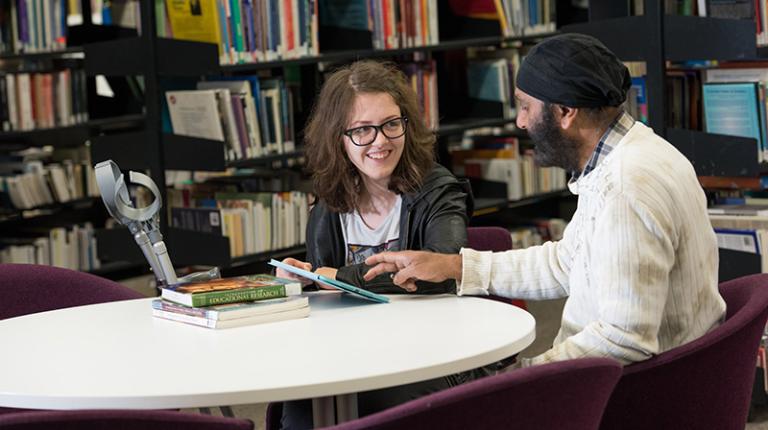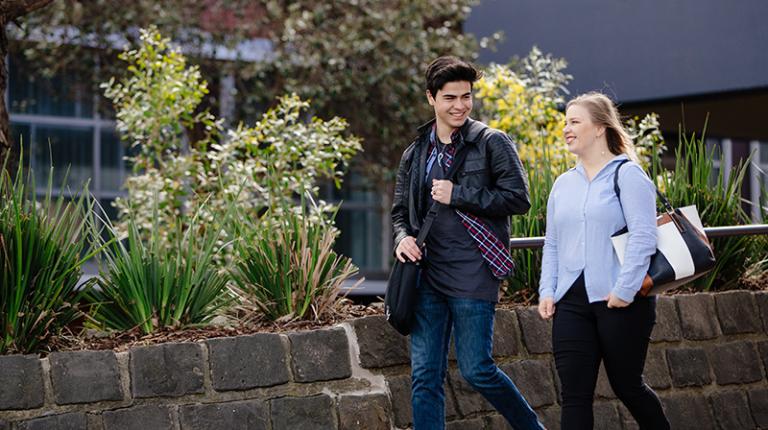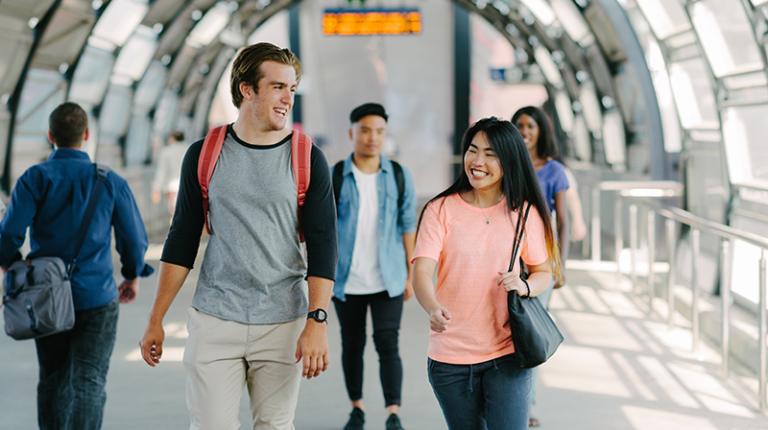Public transport
Public transport Victoria (PTV), provides information about travelling in Victoria on trains, trams and buses. Download the PTV app to check travel timetables and plan your journey.
- Metro trains helps you plan your journey by providing train timetables for each train line. The metroNotify app updates you with any changes to your train journey.
- Vline trains travel to regional Victoria.
- Yarra Trams’ tram tracker app gives you real time tram arrival information.
- Night network services operate every Friday and Saturday night.
- myki is your ticket to travel on trains, trams and buses in Melbourne.
Many undergraduate international students are eligible for an International Student Travel Pass, which allows you to travel at a discounted rate.Check our form to see if you're eligible and apply for an International Student Travel Pass registration code when you arrive in Australia.
If your application is approved, a code will be sent to your VU student email address. You can use this code (along with your current Melbourne postal address and photo) to register your details and buy your pass on the International Student Travel Pass website.
Bicycles
Riding a bike is one of the best ways to cut your transport costs and keep fit at the same time. There are lots of bike paths and on-road bike lanes to keep you out of the traffic zones.
As a cyclist, you must obey the road rules and wear an approved safety helmet. Your bike has to be in good condition, with all the legal safety features such as a bell, reflectors and a light.
Let’s Ride Melbourne and VicRoads have cycling maps and general information about cycling safety on their websites. The Arevo app is a journey planner that displays colour-coded routes a rider can follow, ranging from shared cycling paths to different types of bike lanes.
Bicycle parking is available at all VU campuses and bike hubs with showers and lockers are available at both Footscray campuses.
A bike share service is available in parts of the cities of Melbourne, Port Phillip and Yarra.
Cars & motorbikes
If you will live in Victoria for less than six months and hold a valid driver’s licence or permit from your country, you can drive in Australia under certain conditions.
If you will live in Victoria for six months or more and have a valid overseas driver’s licence or permit you will need to convert it to a Victorian licence within six months of arriving.
Before you begin driving in Victoria:
Victoria has strict drink-driving laws. Make sure you understand the requirements and implications for your licence and how much alcohol is in a standard drink. Know your limits.

